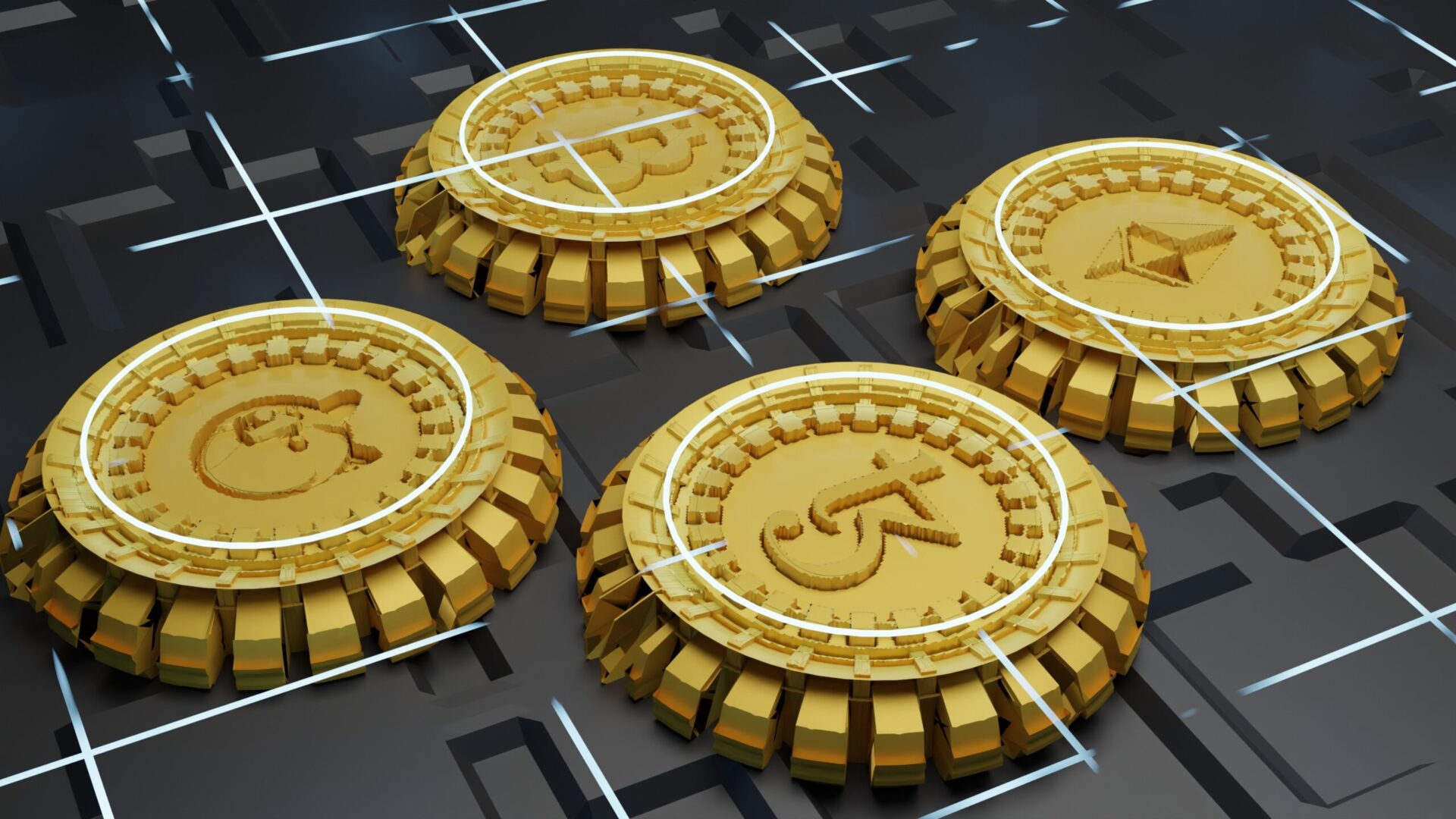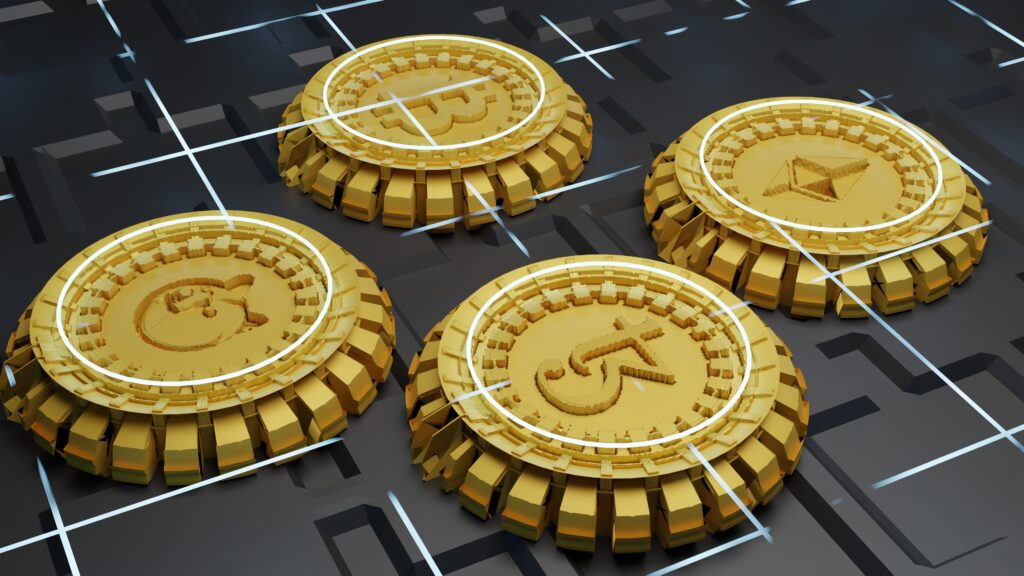Top Cryptocurrency : Exploring the Leading Digital Assets Shaping the Future of Finance

Top cryptocurrency in recent years, cryptocurrencies have emerged as a revolutionary force in the global financial landscape. These digital assets, powered by blockchain technology, have gained significant popularity due to their decentralized nature and the promise of disrupting traditional financial systems. You’ve probably read it already: Understanding Cryptocurrency Market Capitalization: A Comprehensive Guide. As the market continues to evolve, it becomes crucial to understand the top cryptocurrencies that dominate this space. In this comprehensive guide, we will delve into the most prominent cryptocurrencies, their unique features, and the impact they have on the financial world.
See also : Ethereum Consensus Mechanisms : Understanding The Backbone of Secure Blockchain

I. Introduction to Cryptocurrencies
Cryptocurrencies are virtual or digital currencies that utilize cryptographic techniques to secure transactions, control the creation of new units, and verify asset transfers. They operate on decentralized networks based on blockchain technology, a distributed ledger that records all transactions across multiple computers, ensuring transparency, security, and immutability. This decentralized nature sets cryptocurrencies apart from traditional fiat currencies controlled by centralized authorities such as governments and banks.
A. Definition of Cryptocurrencies
Cryptocurrencies are programmable, peer-to-peer digital currencies that enable secure and direct transactions between parties without the need for intermediaries. Each cryptocurrency operates on its unique blockchain, which maintains a transparent and immutable record of all transactions.
B. Importance and Growing Popularity
The rise of Top Cryptocurrency can be attributed to their potential to revolutionize various industries, including finance, supply chain, and real estate. As an alternative to traditional financial systems, cryptocurrencies offer lower transaction fees, faster settlement times, and increased financial inclusion, particularly in unbanked regions.
C. Role of Blockchain Technology
Blockchain technology is the foundation of Top Cryptocurrency, serving as a distributed, decentralized ledger that ensures the security and authenticity of transactions. This technology’s decentralized consensus mechanism removes the need for trust in third-party intermediaries, making cryptocurrencies more robust and resilient against fraudulent activities.
II. Factors Influencing Top Cryptocurrency
Several factors contribute to a Top Cryptocurrency popularity and prominence in the market. Understanding these factors is essential for assessing their potential for long-term growth and sustainability.
A. Market Capitalization
Market capitalization refers to the total value of a Top Cryptocurrency, calculated by multiplying its current market price by the total supply of coins or tokens in circulation. Cryptocurrencies with high market capitalizations are often considered more stable and established in the market.
B. Trading Volume
The trading volume represents the total number of coins or tokens traded within a specific timeframe. High trading volumes indicate active interest and demand for a Top Cryptocurrency, leading to increased liquidity and market stability.
C. Price Volatility
Cryptocurrencies are notorious for their price volatility, with prices experiencing significant fluctuations within short periods. High volatility can attract traders seeking short-term gains but may deter mainstream adoption due to perceived risks.
D. Community Support and Development
A vibrant and engaged community plays a crucial role in the success of Top Cryptocurrency. Strong community support fosters innovation, development, and adoption of new technologies and applications.
E. Use Cases and Real-World Applications
Top Cryptocurrency often have clear and practical use cases beyond being a store of value or a medium of exchange. These use cases include smart contracts, decentralized finance (DeFi) applications, non-fungible tokens (NFTs), and more.
III. Overview of the Top Cryptocurrency
In this section, we will provide an in-depth analysis of the leading cryptocurrencies and their unique features that contribute to their success in the market.
A. Bitcoin (BTC)
- Historical Background and Creation
Bitcoin, created in 2009 by an unknown person or group using the pseudonym Satoshi Nakamoto, was the first Top Cryptocurrency to gain worldwide attention. It was born out of the whitepaper titled “Bitcoin: A Peer-to-Peer Electronic Cash System,” which outlined its innovative concepts.
- Key Features and Characteristics
Bitcoin operates on a decentralized network, ensuring that no central authority controls the currency’s supply or transaction process. Its limited supply, capped at 21 million coins, creates scarcity, often compared to precious metals like gold.
- Dominance in the Market
Bitcoin’s dominance in the cryptocurrency market is evident from its substantial market capitalization, high trading volume, and global recognition as the leading digital asset.
- Use Cases and Adoption
Bitcoin’s primary use case is that of a store of value, with many investors considering it a hedge against inflation and economic instability. Additionally, it serves as a medium of exchange for transactions worldwide, facilitating cross-border remittances and online payments.
B. Ethereum (ETH)
- Introduction to Ethereum
Ethereum, launched in 2015 by Vitalik Buterin, introduced a groundbreaking feature: the ability to create and deploy smart contracts. These self-executing contracts enable decentralized applications (DApps) to run without downtime, censorship, or interference from third parties.
- Smart Contracts and Decentralized Applications (DApps)
Smart contracts are the backbone of Ethereum, revolutionizing industries by automating complex processes and removing intermediaries. The platform hosts numerous DApps, ranging from DeFi platforms to NFT marketplaces.
- ETH 2.0 and Scalability Solutions
To address scalability issues and high transaction fees, Ethereum is undergoing an upgrade to Ethereum 2.0, transitioning from a proof-of-work (PoW) to a proof-of-stake (PoS) consensus mechanism.
- Impact on the DeFi Ecosystem
Ethereum’s smart contract capabilities have driven the explosive growth of DeFi, allowing users to access financial services like lending, borrowing, and trading without intermediaries.
C. Binance Coin (BNB)
- Origin and Binance Exchange Connection
Binance Coin, the native cryptocurrency of the Binance exchange, was launched in 2017 by Changpeng Zhao. Binance, one of the world’s largest cryptocurrency exchanges, played a significant role in BNB’s adoption.
- Utility Within the Binance Ecosystem
BNB serves as the native token of the Binance platform, offering users discounts on trading fees and participation in token sales on the Binance Launchpad.
- Token Burning Mechanism and Its Effects
To maintain scarcity and increase the value of BNB, Binance regularly conducts token burns, removing BNB from circulation.
D. Cardano (ADA)
- Cardano’s Scientific Approach and Peer-Reviewed Research
Cardano, founded by Charles Hoskinson, stands out for its rigorous scientific approach to development. Its protocols and updates are peer-reviewed by experts, ensuring a solid technical foundation.
- Ouroboros Consensus Algorithm
Cardano employs the Ouroboros PoS consensus algorithm, which offers security and scalability while minimizing energy consumption.
- Advancements in Sustainability and Scalability
Cardano aims to improve sustainability in the blockchain space by addressing environmental concerns and offering a scalable platform for various use cases.
E. Solana (SOL)
- Introduction to Solana’s High-Speed Blockchain
Solana is known for its high-speed blockchain capable of processing up to 65,000 transactions per second, making it highly efficient for various applications.
- Proof-of-History (PoH) and Proof-of-Stake (PoS) Consensus
Solana’s unique PoH consensus mechanism enables the network to timestamp transactions, enhancing security and throughput in combination with PoS.
- Recent Developments and Projects Built on Solana
Solana has witnessed rapid growth, attracting DeFi projects and NFT marketplaces due to its scalability and low transaction fees.
F. Other Prominent Cryptocurrencies
- Ripple (XRP)
Ripple, launched in 2012, is designed to facilitate fast and low-cost cross-border payments. Unlike many other cryptocurrencies, Ripple is not mined; instead, the total supply of XRP was pre-mined at the time of its creation.
- Polkadot (DOT)
Polkadot, founded by Dr. Gavin Wood, is a multi-chain blockchain platform that enables different blockchains to interoperate and share information seamlessly. Its unique architecture aims to solve the issue of blockchain interoperability.
- Dogecoin (DOGE)
Initially created as a joke in 2013, Dogecoin has since gained a massive following due to its vibrant community and meme-based culture. Despite its light-hearted origins, DOGE has found use cases in tipping content creators and charitable donations.
- Litecoin (LTC)
Often referred to as the “silver to Bitcoin’s gold,” Litecoin was one of the earliest altcoins to be created in 2011 by Charlie Lee. It shares many similarities with Bitcoin but offers faster transaction times and lower fees.
IV. Investing in Top Cryptocurrency
With the rise of cryptocurrencies, many investors are looking to participate in this rapidly evolving market. However, it is essential to approach Top Cryptocurrency investing with caution due to its inherent volatility and risks.
A. Risk Factors and Volatility
Top Cryptocurrency are notoriously volatile, with prices capable of experiencing significant swings within short periods. Investors should be prepared to endure price fluctuations and potential losses.
B. Investment Strategies and Diversification
Diversification is key to managing risk in Top Cryptocurrency investing. Rather than concentrating funds in a single cryptocurrency, spreading investments across different digital assets can reduce the impact of individual price fluctuations.
C. Wallet Security and Best Practices
Securing Top Cryptocurrency is crucial to protecting assets from theft or hacking. Utilizing hardware wallets, strong passwords, and practicing vigilant security measures can safeguard digital assets.
V. Future Outlook for Top Cryptocurrency
The cryptocurrency market is continually evolving, and the future holds various opportunities and challenges for the leading digital assets.
A. Regulatory Challenges and Potential Impact
As cryptocurrencies gain mainstream attention, regulatory scrutiny is increasing. Governments worldwide are working on developing frameworks to govern cryptocurrency use, which could impact market sentiment and adoption.
B. Technological Advancements and Scalability Solutions
The scalability and speed limitations of certain blockchain networks are being addressed through technological upgrades. Innovations like layer-two solutions and interoperability protocols could significantly enhance the functionality of cryptocurrencies.
C. Integration with Traditional Financial Systems
Cryptocurrencies’ adoption by traditional financial institutions, such as banks and payment processors, could lead to broader acceptance and utility in everyday transactions.
D. Long-Term Growth and Adoption Prospects
The long-term growth prospects for cryptocurrencies are promising, with increasing interest from institutional investors and growing adoption of blockchain technology across various industries.
VI. Conclusion Top Cryptocurrency
Top Cryptocurrency have emerged as a disruptive force, transforming the global financial landscape. Bitcoin’s pioneering journey paved the way for a plethora of innovative digital assets, each with its unique features and use cases. Ethereum’s smart contracts opened the door to decentralized applications, fostering the growth of DeFi and NFTs. Meanwhile, other prominent cryptocurrencies like Binance Coin, Cardano, and Solana have made significant strides, showcasing the vast potential of blockchain technology.
As the cryptocurrency market continues to evolve, it is essential for investors to approach this space with a well-informed and cautious mindset. Understanding the factors that influence a cryptocurrency’s value, conducting thorough research, and practicing sound investment strategies are vital for navigating this dynamic market successfully.
While cryptocurrencies have made remarkable progress, regulatory developments, technological advancements, and mainstream adoption will play pivotal roles in shaping their future. As the world embraces the potential of blockchain technology, cryptocurrencies are poised to become integral components of the financial ecosystem, redefining the way we perceive and transact value in the years to come.
And for those of you who want to grow your Instagram account, you can directly use our service free instagram followers and you can like your post on instagram with Free instagram likes







